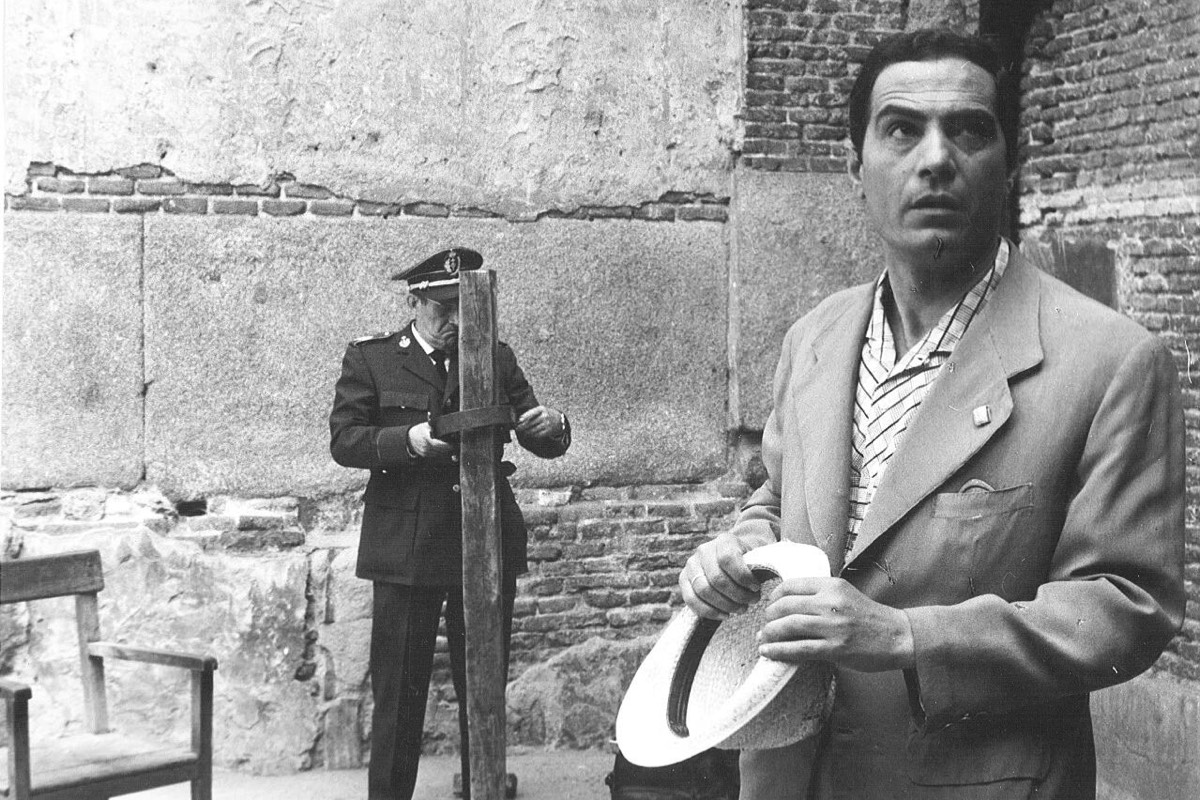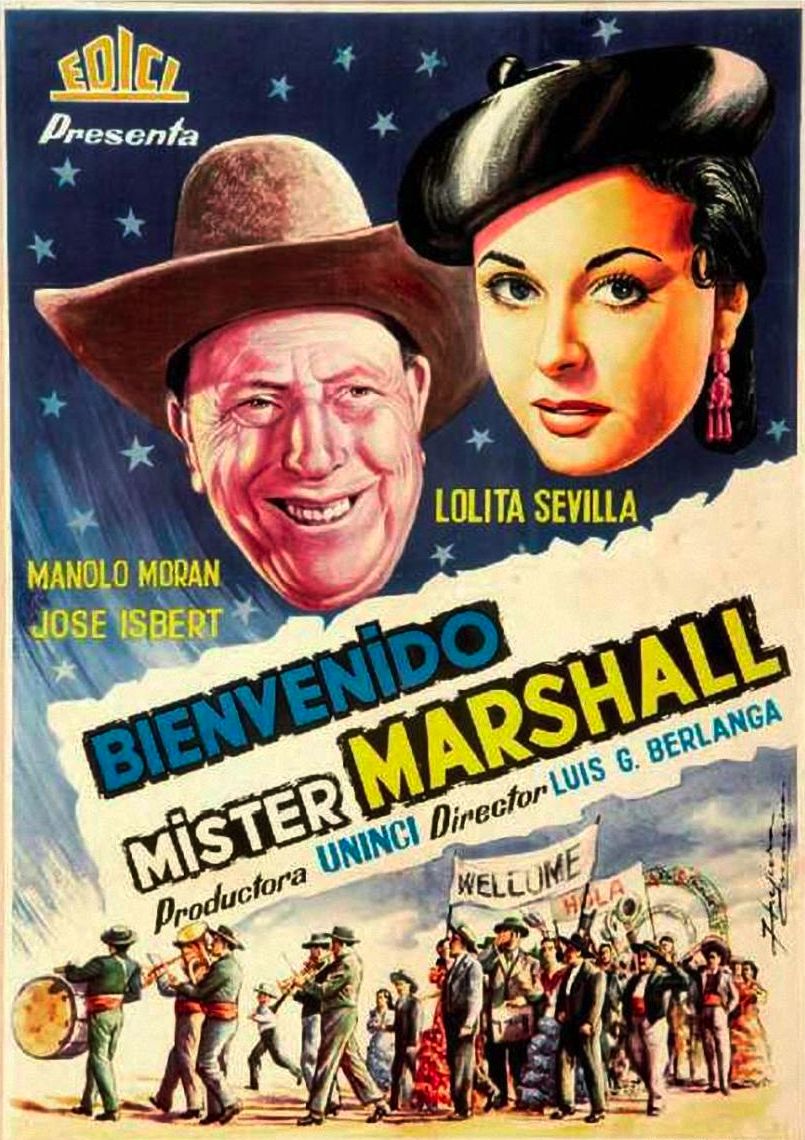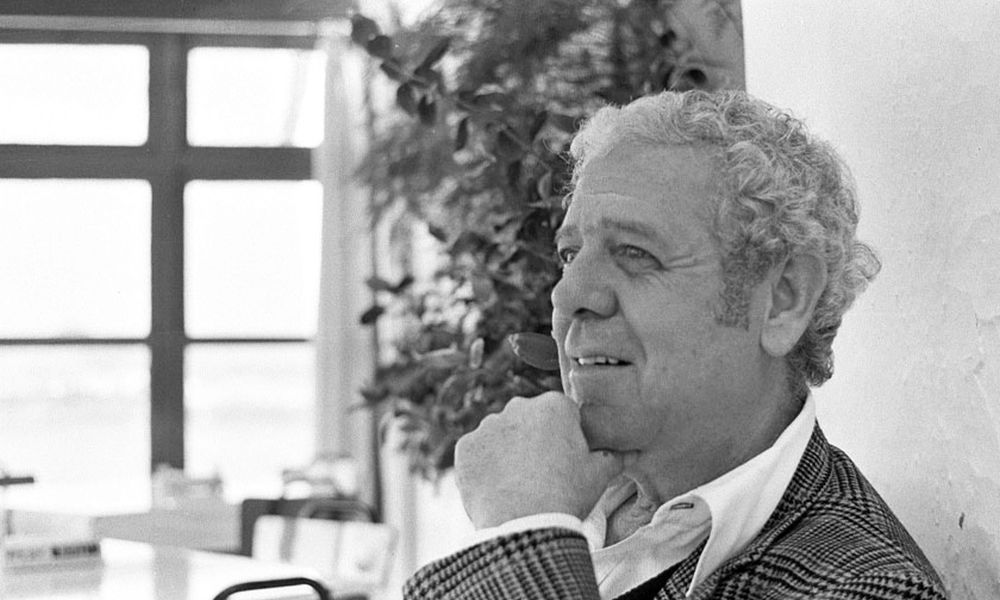"In many movies he has exposed the pitfalls of Spanish society and satirized those institutions or individuals who take themselves too seriously, often using black humor to deflate their pretentions. Berlanga’s sympathies are with the underdogs of whatever social class, those who are victims of fate, institutions, or other forces they cannot control." - Katherine Singer Kovács (International Dictionary of Films and Filmmakers, 2000)
Luis García Berlanga
Director / Screenwriter
(1921-2010) Born July 12, Valencia, Valencia, Comunidad Valenciana, Spain
Top 250 Directors
(1921-2010) Born July 12, Valencia, Valencia, Comunidad Valenciana, Spain
Top 250 Directors
Key Production Countries: Spain, Italy
Key Genres: Comedy, Comedy Drama, Satire, Black Comedy
Key Collaborators: Rafael Azcona (Screenwriter), José Luis López Vázquez (Leading Character Actor), Félix Fernández (Character Actor), Pepita Orduna (Editor), José Luis Matesanz (Editor), Manuel Alexandre (Character Actor), José Isbert (Leading Actor), José Luis Colina (Screenwriter), Alfredo Matas (Producer), Francisco Sempere (Cinematographer), Carlos Suárez (Cinematographer), Miguel Asins Arbó (Composer)
Key Genres: Comedy, Comedy Drama, Satire, Black Comedy
Key Collaborators: Rafael Azcona (Screenwriter), José Luis López Vázquez (Leading Character Actor), Félix Fernández (Character Actor), Pepita Orduna (Editor), José Luis Matesanz (Editor), Manuel Alexandre (Character Actor), José Isbert (Leading Actor), José Luis Colina (Screenwriter), Alfredo Matas (Producer), Francisco Sempere (Cinematographer), Carlos Suárez (Cinematographer), Miguel Asins Arbó (Composer)
"Spanish director whose popularity at home has not been matched abroad but who nevertheless stands with his one-time collaborator Juan Antonio Bardem as a major figure in the Spanish cinema of the 1950s and 1960s." - Rikki Morgan (Encyclopedia of European Cinema, 1995)
"Berlanga's taste was for satire. Welcome Mr. Marshall (1953) is a sardonic look at the effect on a small Spanish town of the possibility of American aid. Like many artists in Franco's Spain, he suffered constantly from censorship. Despite cuts, The Executioner (1964) contains social criticism spiked with gallows humour. His post-Franco films have been successful in Spain." - Ronald Bergan (A-Z of Movie Directors, 1983)

El Verdugo (1963)
"He is a masterful satirist and has followed in his best films (notably Placido) the great spanish picaresque tradition. He has said of himself: "I want to show only the goodness of men through the social order and mankind. As a man, I am a liberal, as an individual, a Christian. What pleases me is to make films. I like to live and be left in peace." This latter wish has not always been granted, since his films have often fallen afoul of the censor." - Georges Sadoul (Dictionary of Film Makers, 1972)
"From 1951 until the turn of the century, Berlanga made 17 feature films, a number of them with Rafael Azcona, one of Spain's great screenwriters. Berlanga tended to play down their importance, insisting they were comedies. In fact, though they were, they were the films of an auteur, too. Critics and directors in Spain today see his work as fundamental to Spanish cinema. The great contemporary Spanish film director Pedro Almodóvar described Berlanga and Luis Buñuel as the two masters from whom all Spanish films derive. And for anyone on the outside, each Berlanga film is a porthole into a period of Spain, and feels like a glimpse of something Spanish – in the same way, perhaps, that Monty Python strikes others as terribly British." - Thomas Graham (BBC Culture, 2021)
"A liberal and an individualist, Berlanga continued on a course of personal expression despite harassment by the Spanish censors." - The Film Encyclopedia, 2012
"Along with Juan Antonio Bardem, the only significant figure in domestic Spanish film production of the 1950s. Berlanga first achieved international acclaim as the director of Welcome Mr. Marshall (1952), a comedy about the reaction of a small Spanish village to the Marshall Plan, which lifted Spanish cinema out of a 15-year doldrum." - The Virgin International Encyclopedia of Film, 1992
"It is clear that Berlanga has changed his narrative point of view over the last thirty years. Beginning as a traditionalist filmmaker, imitating the Italian neo-realist school, he developed his own brand of social realism in the Fifties and Sixties, keeping his characters and plots scaled down. With the advent of the New Wave of Spanish Cinema since Franco's death, his films have grown more operatic... He has left an indelible imprint on all of modern Spanish cinema." - Ronald Schwartz (Spanish Film Directors, 1986)
Selected Filmography
{{row.titlelong}}
Luis García Berlanga / Fan Club
Jaume Figueras, Pedro Almodóvar, Esteve Riambau, Fernando Colomo, José Luis Garci, Carmelo Romero, Nuria Vidal, Pere Portabella, Alejandro Amenábar, Juan Carlos Fresnadillo, Javier Angulo, Manuel Gutiérrez Aragón.
Jaume Figueras, Pedro Almodóvar, Esteve Riambau, Fernando Colomo, José Luis Garci, Carmelo Romero, Nuria Vidal, Pere Portabella, Alejandro Amenábar, Juan Carlos Fresnadillo, Javier Angulo, Manuel Gutiérrez Aragón.
"Fan Club"
These film critics/filmmakers have, on multiple occasions, selected this director’s work within film ballots/lists that they have submitted.
These film critics/filmmakers have, on multiple occasions, selected this director’s work within film ballots/lists that they have submitted.


